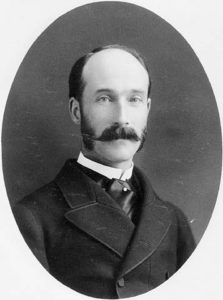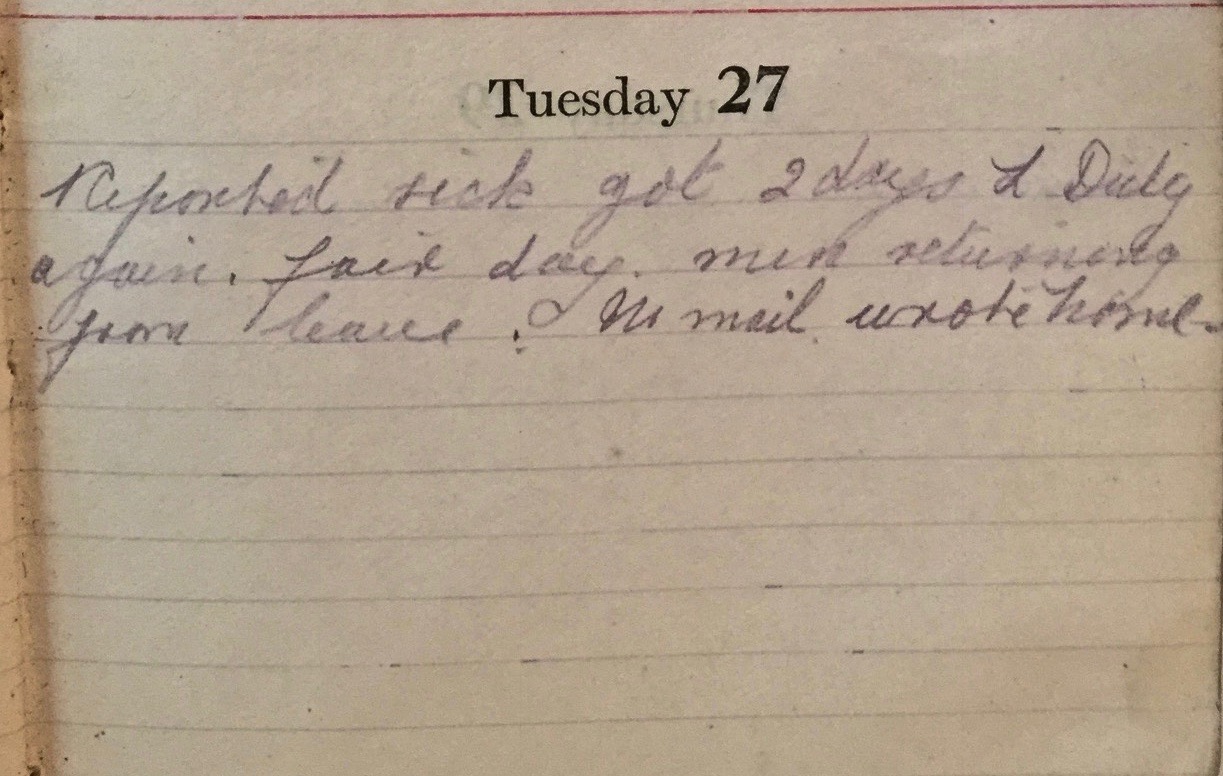Tuesday August 27th, 1918
Reported sick. Got two days light duty again. Fair day. Men returning from leave. No mail, wrote home.
Pacifists
With the tide of the war turning in favour of the Allies, thoughts have turned to peace. However the establishment doesn’t want a peace at any price.
A few days ago, while debating the Manpower Bill in the US Congress, various senators talked about the terms for peace with Germany. Senator McCumber stated that Germany should be ‘made to pay heavily… There must be no peace pact until Germany has surrendered unconditionally and delivered over the murderers of Nurse Cavell and other innocents.’
Another, Senator Lodge, predicted that Germany would ‘resort to the weapon with which she had disorganized Russia, namely “insidious and poisonous peace propaganda”‘.¹
These sentiments are echoed in The Guardian today when it reported a speech made by the Australian Prime Minister, Mr William M Hughes, in the Manchester Free Trade Hall last night. Mr Hughes warns against pacifism and a negotiated peace. He draws on the examples of the peace treaties that Germany has already secured with Russia and Rumania. He claims that both have led to the subjugation of their nation states. The report continued: ‘Our soldiers and sailors would not fail us, but there were elements in our midst who were playing the game of the enemy. …. Some of them were very sincere and earnest, some were not. We could not afford to be mealy-mouthed. The pacifist was at the best the unwitting agent of Germany. He was – even when quite honest and sincere – doing his dirty work’.²
Lord Lansdowne

One of the people in the sights of these politicians was the Fifth Marquess of Lansdowne. He was a renowned statesman, former Governor General of Canada and Viceroy of India. In November 1917, he outraged the establishment by circulating a letter to the Cabinet calling for Britain to negotiate a peace with Germany. It was at best divisive: unpopular with most in the Cabinet, the Foreign Office did not veto it. The Times newspapers refused to print it, but the Daily Telegraph reproduced it on November 29th, 1917 and The Guardian followed suit the next day.
Lansdowne became a pariah and his letter ‘a deed of shame’. Undeterred, in February 1918 Lansdowne continued to promote his ideas by founding the Lansdowne Committee.
Never a war monger, as the death toll rose, he had become more dismayed – believing it could lead to the end of civilization. Like Lord Denbigh, Landsdowne had lost his younger son to the war. Their reactions were radically different.
At the beginning of August, the Lansdowne Committee held a Conference on the Conditions of a Peace Discussion. Ramsey MacDonald and a variety of other politicians and religious leaders attended. A letter from Lord Lansdowne was read out, it contained the following:
‘We are not going to lose this war, but its prolongation will spell ruin for the civilized world, and an infinite addition to the load of human suffering which already weighs up it… We do not desire the annihilation of Germany as a great power. … We have no desire to deny Germany her place among the great commercial communities of the world.’
With victory in sight, labour unrest and rumblings of a negotiated peace, the establishment is closing ranks against such talk.
9th Battalion / Manchester Regiment War Diary – 27th August 1918 – Haudricourt
Work and Training as usual. 1 OR is taken on effective strength from 13-8-18 (attached Bn TMB). 2Lt F Turner returned from leave to UK.
References & Further Reading
¹ Article in The Guardian, August 26, 1918, page 6
² The Guardian, August 27, 1918, page 8
³ ‘Lord Lansdowne‘ on Wikipedia and articles in the Guardian, August 1, 1918, page 5/6
^ photograph from Wikimedia, image may be subject to copyright but believed to be public domain


